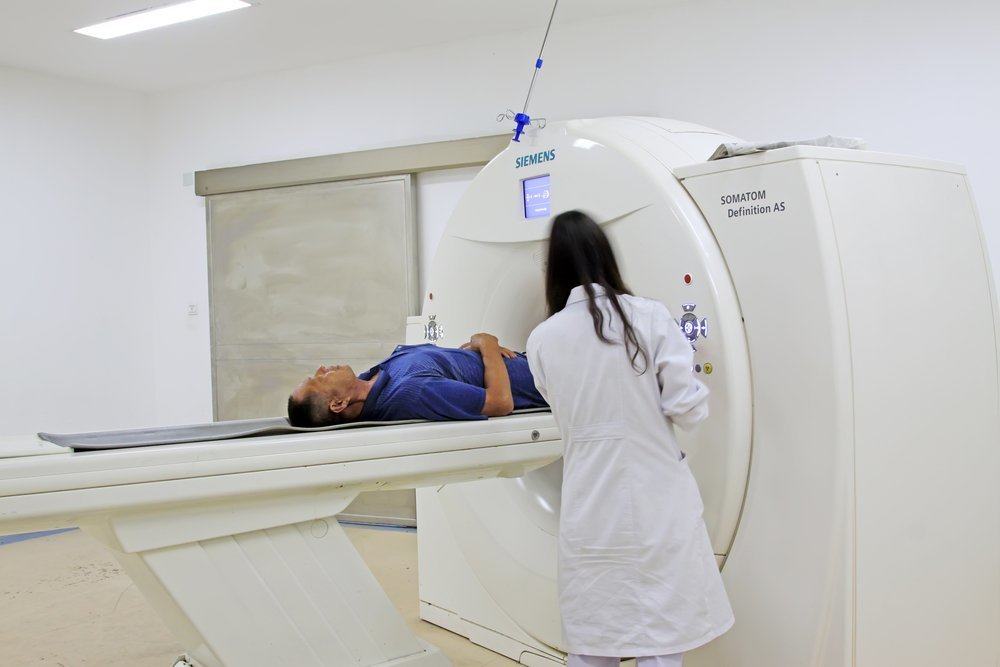Contents:
- Medical Video: What Causes Decreased Urine Output?
- Anuria is a condition that attacks the kidneys
- What are the causes of anuria?
- What are the symptoms of anuria?
- How do doctors diagnose anuria?
- How to treat anuria?
Medical Video: What Causes Decreased Urine Output?
Urine or urine is a very important waste product from the human body. When the body does not produce urine or only in very small amounts, there may be a health problem that causes it. Anuria is a condition of the body when it cannot expel urine (urine). People with anuria need further medical treatment to deal with their condition. See below what is anuria and its treatment.
Anuria is a condition that attacks the kidneys
Anuria is a condition when the kidneys stop producing urine. This condition usually results from a kidney problem.
Urine or urine is the result of filtering and disposal of body waste that is no longer needed. Normally, adults can produce 1,000-2,000 ml of urine a day. Whereas someone will be said to have anuria if they are only able to produce less than 500 ml of urine per day.
Before a person experiences anuria, usually he will go through the phase of experiencing oliguria. Oliguria is a condition where the amount of urine is small, but not as severe as anuria. Anuria is a sign of acute or chronic kidney problems.
Not treating anuria can cause life-threatening complications. Because, anuria can make the kidneys permanently damaged, which is certainly very fatal.
What are the causes of anuria?
The cause of anuria is any problem related to kidney organs. Actually anuria can also be caused by problems in the heart, but the case is very rarely known.
Problems with the kidneys themselves can be caused by various things which then lead to anuria or cannot urinate. Here are some of the causes of anuria:
- Diabetes. Blood sugar is too high in diabetics can cause diabetes ketoacidosis and cause damage to the blood vessels in the kidneys. This condition can cause acute kidney failure.
- Kidney stones. Kidney stones can cause blockages in the kidneys or ureters (channels that connect the kidneys to the bladder). This condition makes urine finally unable to get out.
- Kidney failure. When kidney failure occurs, the kidneys begin to stop functioning and are no longer able to filter and produce urine.
- High blood pressure. Uncontrolled high blood pressure can cause damage to the blood vessels in the kidneys. The longer this condition can make the kidneys damaged and anuria occurs.
- Tumor. Tumors that grow around the kidneys can make a blockage that prevents the discharge of urine.
- Heart failure. If someone has heart failure, the heart cannot pump enough blood throughout the body. The body also thinks the blood vessels are lacking in fluids. As a result the kidneys will compensate by stopping producing urine to provide additional fluid to the body.
What are the symptoms of anuria?
Actually the condition of not being able to urinate alias anuria is a symptom itself. Therefore, other symptoms will follow what causes anuria in your body.
If it happens Kidney illness, then the symptoms that appear are:
- Swollen feet on the wrists and soles of the feet
- Rashes and itching on the skin
- Low back pain on the side
- Nausea and vomiting
- Out of breath
- Dizzy
- Difficulty concentrating
- Tired
Symptoms that will occur when they occur heart failure:
- Hard to breathe
- Swollen foot
- Fatigue or dizziness
- Nausea
- Bad appetite
- High heart rate
- Cough
Symptoms that occur when they occur Diabetic ketoacidosis:
- Excessive thirst
- Dry mouth
- Gag
- Stomach pain
- Diarrhea
- Loss of appetite
- Tired
- Fatigue
- Typical breath (smell of ketone)
For those of you who experience the above symptoms accompanied by anuria, immediately see your doctor to get treatment as soon as possible.
How do doctors diagnose anuria?
Anuria is a condition that must be treated medically. Therefore, you need to get the right diagnosis from the doctor. Diagnosing anuria and its main cause begins by asking the patient's medical history thoroughly. You might be asked:
- There is swelling
- Fatigue condition
- There is no change in appetite
- How often urinate
- How much urine comes out
- Is there pain in the abdomen or at the waist
- Use of any medication
In addition to asking these questions the doctor will also give certain tests such as:
- Blood test to see kidney function
- Urine test to see the condition of blood sugar
- Kidney biopsy, which is taking a little of your kidney tissue
- Taking images of the kidneys through X-rays or CT scans, or MRI scans
How to treat anuria?
Reporting from the Healthline page, treatment of anuria depends on the underlying cause. Kidney disease is usually treated with dialysis to expel unused fluids and regulate body fluids that should be done by the kidneys.
Besides that, it can also be used ureteric stent, namely a replacement for the ureteral duct (the channel that connects the kidney to the bladder). This tool is a small tube or pipe that connects the kidney directly to the bladder.
Kidney transplantation is the last resort if other treatment options fail or don't work.
If you have hypertension or diabetes, it is important to continue taking the medication according to the doctor's instructions. Applying a healthy lifestyle including diet, exercise, and good stress management is also very important. With the improved condition of hypertension and diabetes, anuria can be resolved and the voiding condition returns to normal.
If there is a kidney stone or tumor, then the stone or tumor needs to be removed to restore kidney function as before.












